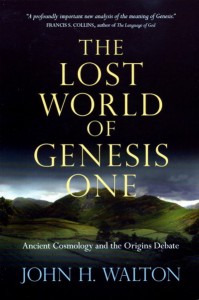There’s a book that I’ve been wanting to read for several years called The Good and Beautiful God by James Bryan Smith, so when the life group that Breena and I recently joined decided to start going through it together, I was very excited. I’ve only read the first chapter so far, but it was very insightful, and I hope to use this blog to post some of my thoughts and reflections on the book.
The thesis of the book is this: Transformation happens through training my soul. (20) Transformation is a vital part of life for the Christian, as God both promises and commands it in Scripture. It does not happen magically, however. Rather, it demands our full participation, though perhaps in a way that is different than you or I would expect.
Smith tells of a “false narrative” that almost all of us believe. That narrative is this: We change by our willpower. “When people decide to change something, they muster their ‘willpower’ and set about trying to change some behavior. This nearly always fails.” (21) It fails, he says, because the will actually has no power. The will is the human capacity to choose. (22) The will is not something that acts or has power. Rather, the will responds to outside agents, and there are three primary agents that influence the will: the mind, the body, and the social context. (22) In other words, we make choices based on the input we receive from our minds (I’m turning left on this road because I know my destination is in that direction), our bodies (I eat lunch because I’m hungry), and our social contexts (I cheer on the Buckeyes because I grew up in Ohio). Change, therefore, happens not because I muster up the strength to make a new choice, but because the influencers on my will are somehow modified (I learn new things, I exercise, I make new friends). “When new ideas, new practices and new social settings are adopted, change happens.” (22)
Rather than reinforcing the old narrative of willpower, Jesus created a new change narrative: We change by indirection.
If we adopt Jesus’ narratives about God, we will know God properly and right actions will follow. And the opposite is true. We change not by mustering up willpower but by changing the way we think, which will also involve changing our actions and our social environment. We change indirectly. We do what we can in order to enable us to do what we can’t do directly. …We cannot change simply by saying, “I want to change.” We have to examine what we think (our narratives) and how we practice (the spiritual disciplines) and who we are interacting with (our social context). If we change those things – and we can – then change will come naturally to us. This is why Jesus said his “yoke” was easy. If we think the things he thought, do the things he did and spend time with likeminded people, we will become like him, and it will not be difficult. (22-23)
The first step toward change is to examine the fundamental narratives (stories) you believe to be true. How does the world work? Who am I? Who is God? Answering these questions, and ones similar to this, will help you to verbalize the narratives you believe. What are the fundamental narratives you believe to be true? Let me tell you mine.
One of the narratives that I’ve believed (in my heart, not necessarily in my head – and that distinction is important) is this: God makes prosperous the lives of those who step out in faith for him. I do not mean by this that all pastors and missionaries will be financially prosperous, but that their lives will be free from certain troubles and trials, like family health issues, necessary but inescapable debt (perhaps from medical bills), unjust job loss, and ministry failure. (Basically, all the things that have happened to me and my family in the past few months!) I have believed that bad things only happen to God’s servants because of discipline or punishment, and not as the natural course of living in a fallen world.
Besides being a demonstration of poor theology, my narrative is wrong in one rather large way. Can you spot it? Although God is the subject of that sentence, my narrative is fundamentally about me. I, and the quality of my life, are the center of that story. It’s all about me.
But Jesus’ narratives are fundamentally about God.
“God is good.”
“God is beautiful.”
“God is agape love.”
Perhaps the first thing that you and I need to examine is the subject of the stories we believe. Are we believing and telling and living stories about God, or stories about ourselves? “In order to change we first have to change our minds. …Adopting Jesus’ narratives is a way we come to have the mind of Christ.” (26) The world that Jesus saw and experienced was as broken as our own, but at the center of it all he could see, not himself (though he is God), but his Father. Jesus saw the truth, testified to the truth, and told stories of the truth. God is the truth, and in order to be set free by the truth we must learn to live and believe the narratives of Jesus.
What are the narratives that you have been believing and living?

